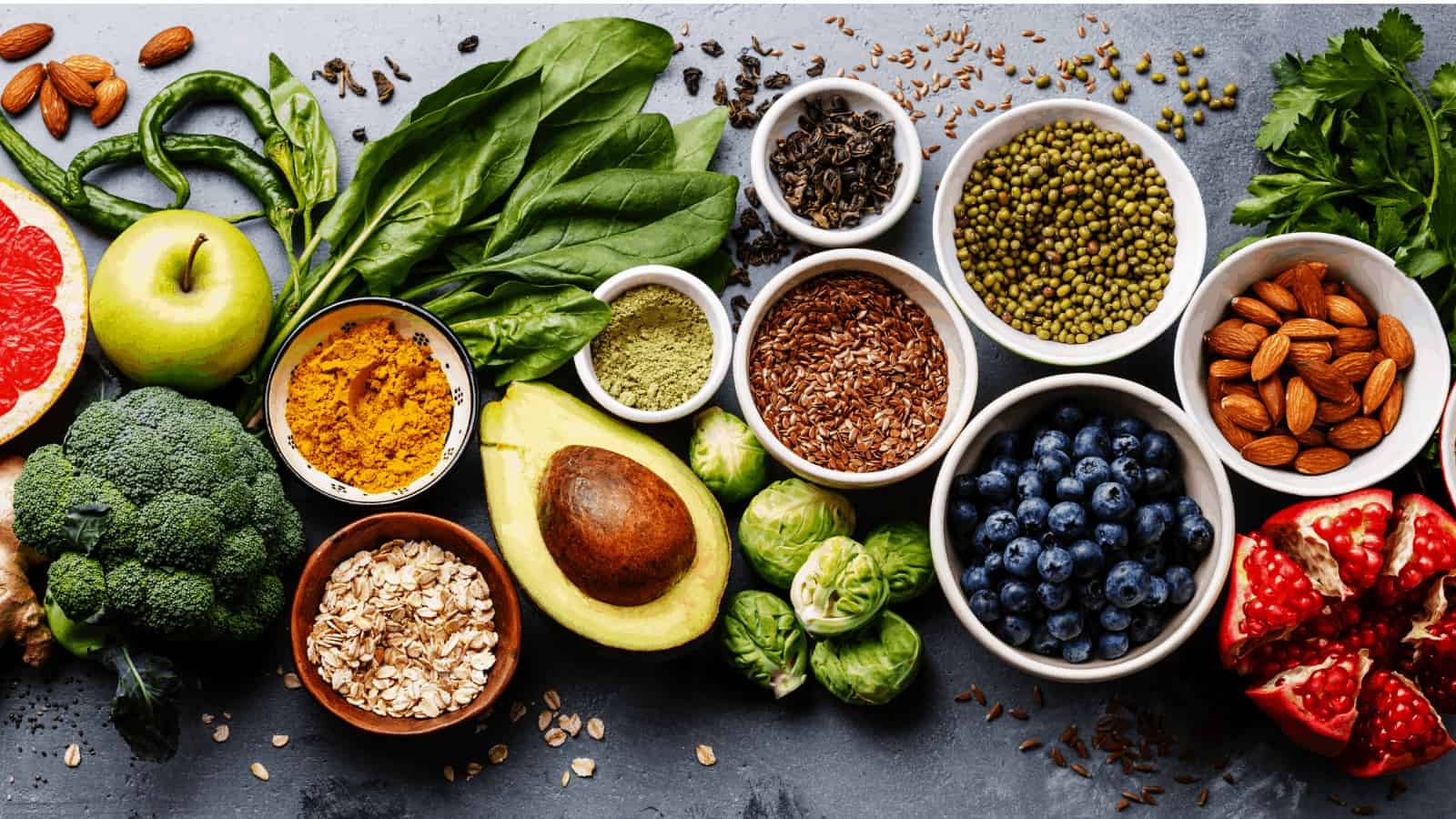Have you ever considered that your body can tell you what it needs? This may include the foods you consume. However, temporary cravings may be interrupting this internal voice like an irritating tv commercial.
Perhaps you can benefit from following intuitive eating habits. While humans are hardwired to find and consume the foods we need, the intuitive process was best defined by registered dieticians Evelyn Tribole and Elyse Resch in 1995. According to an article published by Tribole, the method combines your instinct, emotion, and rational thought.
The premise is that you can listen to cues from your body as a healthy guide for eating. Tribole and Resch developed ten principles that they claim can help people enhance their inner awareness and clear obstacles.
Since you’re an individual, it’s a singular process your body tailors for you. Eating intuitively is as simple as it was for the earliest humans. When you get hungry, you find something to fill your growling stomach.
Your body instinctively knows the best foods to satisfy its needs. When you’re full, you stop eating. You don’t need to permit yourself to eat, and you’re not overwhelmed with emotions connected with food.
According to this intuitive theory, your body will adjust to your ideal weight. It assumes that you will have an automatic draw to nutritious food and an individualized balanced diet. At first, the eating plan sounds like a blank check for eating anything you want.
Wouldn’t it be like tossing moderation and your well-being to the wind? When you understand the ten guiding principles behind the theory, you may find that these objections are missing valuable points.
10 Principles of Intuitive Eating
After the research on their eating theory, Tribole and Resch developed ten guidelines. They give you better insight on how to listen to your inner voice and avoid common pitfalls. Here are the principles as published in an article by the British Heart Foundation.
1. Stop the Diet Cycle
One way to rely more on your intuition for nutrition is to reject the concept of dieting. As soon as you hear the word, you may automatically assume a temporary program of food deprivation. You get a whole list of forbidden foods that may instantly create cravings.
Instead of using external lists and other traditional diet tools, you learn to trust your intuition as an eating plan. Intuitive eating habits transcend the temporary goal of eating to lose weight. Fortunately, you will probably lose weight as you focus on your inner voice.
2. Redefine Hunger
It takes a while to realize that hunger isn’t your enemy. You are discovering how to honor your hunger by redefining it. Your body has automatic physical triggers that alert you when it needs food. As your tummy growls and your mouth waters in anticipation, your intuition says it’s time to eat.
3. Change Your Relationship with Food
Once you’re beyond the fruitless cycles of dieting, you can finally make peace with food. There are no more restrictions or an overload of a particular food group. Building intuitive eating habits allows you to enjoy any nutritious food in moderation.
4. Re-evaluate the Food Laws
If you’ve spent years yo-yo dieting, you’re probably familiar with the laws imposed by the “food police.” These are preconceived notions that are drilled into your mind by the diet and fitness industry. Unfortunately, many of these notions may not be accurate or healthy for you.
5. Know When You’re Full
Another principle to this theory is to respect or recognize when you’re full. If you stop during a meal and listen to your body, you may not be hungry at all. The many times you reach for second helpings may be out of habit and not from hunger.
6. Discover Satisfaction in Eating
Do you take time to savor your food, or do you gobble it down in a rush? If not, you’re missing the proverbial feast of the senses. Part of eating intuitively is to relish the sight, scents, textures, and flavor nuances of your food.
7. Stop Using Food as a Reward
Here is a defeating practice that’s often ingrained in you since your childhood. Well-meaning parents and grandparents have stuffed their youngsters with comfort food for generations.
As a result, you may still reward your successes with food that’s loaded with empty calories, fat, and sugar. Intuitive eating habits may help you discover a better reward alternative.
8. Be Kind to Your Body
Perhaps you’ve started countless diets because of a negative body image. Instead of hating your body and dieting to get skinny, your inner voice wants you to be healthy. You begin to listen to your inner voice and learn to eat with self-compassion and love for yourself, regardless of shape or size.
9. Get Your Body Moving
Did you ever wonder why your ancestors didn’t need modern gym equipment to stay in ideal physical shape? They did it naturally by working and enjoying recreational activities. You are more apt to get your body moving if you consider it fun rather than a dreaded chore of exercise.
10. Make Good Health a Top Priority
As you heed your body’s intuitive nudges, you may find that you’re eating to live instead of living to eat. Instead of trying yet another diet, your goal switches to being healthy rather than being skinny. Your body will tell you what it needs to be healthy and fulfilled.
How To Cultivate Intuitive Eating Habits
The more you listen to intuition for eating, the less you will depend on yo-yo dieting. According to an article published by the Boston Medical Center, Americans spend approximately $33 billion a year on dieting products. Unfortunately, says the paper, at least two-thirds of the population still battle obesity.
Given these odds, it’s obvious that the diet plans are failures, not the people. Are you ready to leave the diet merry-go-round and start listening to your inner voice? Here are ten intuitive eating habits to cultivate each day.
1. Eat When You’re Hungry
Most people are programmed to eat breakfast in the morning, lunch at noon, and dinner in the evening. Those eating plans don’t work for everyone.
Your inner voice may cue you to eat several smaller meals during the day. It would be best if you ate when you’re hungry and stop when you’re physically complete.
2. Practice Mindful Eating
Some people rush through their meals obliviously. Instead, practice taking small bites, chewing well, and savoring your food.
It helps to put your spoon or fork down for a couple of minutes between bites. Delight in the nuances of your food, and you may be satisfied with less.
3. Be Your Own Advocate
You know what’s best for you, despite well-meaning advice from family and friends. Listen to your inner voice when you are hungry and politely ignore those that tell you how to eat. Your intuition is always out for your best interests.
4. Practice Natural Portioning
An article by Dr. Lisa Young in the Journal of American Dietetic Association states that food portions have expanded exponentially in America over time. One way you can control portions while eating intuitively is to serve food on smaller plates. It looks like you have more, even when you don’t have as much.
5. Get Up and Move
You can follow the principle concerning exercise if your goal is to be active every day. Take pleasant walks through the woods, a stroll through your local park, or you can take the stairs instead of the elevator at work. All these exercises get your body moving as you burn fat and calories naturally.
6. Healthy Reward System
How do you practice the principle of re-evaluating your rewards system without food? Instead of diving into a plate of chocolate chip cookies when you’ve met a goal, reward yourself with a manicure or a new outfit. You should buy an attractive notebook for journaling or hang a picture of something that brings you joy.
7. Set Yourself Up for Success
You aren’t as apt to graze on junk food if it’s not in your house. Be proactive and fill your refrigerator and pantry with a variety of tasty whole foods and snacks. When your inner voice gives the hunger signal, you’ll be ready to respond with nutritious options.
8. Meditate Each Day
Meditation is an excellent tool for learning how to recognize your inner voice. Find a peaceful place to sit or lie down and allow thoughts to flow in and out of your mind with compassion. You’ll recognize that still, small voice that can gently guide you to better nutrition.
9. Keep a Food Diary
If you are an emotional eater, keeping a food diary can help you sort through your feelings. What emotions and past trauma have you covered with a blanket of food? As you explore your feelings and find other coping skills, you may rely less on food and will eat when your intuition speaks.
10. Play with Your Food
When you’ve cleared your kitchen of junky processed foods, you make space for whole delightful foods you’ve never tasted. Your body craves a variety of food that bursts with flavor. After tasting new products and other nutritious foods, your body may request them more.
Final Thoughts on Developing Intuitive Eating Habits
Your body is one of the most elaborate machines in the Universe, and it will tell you what it needs. Try using these suggested habits to become more familiar with your inner voice. When you’re in sync with your body, you can enjoy better health and more satisfaction for a lifetime.



















